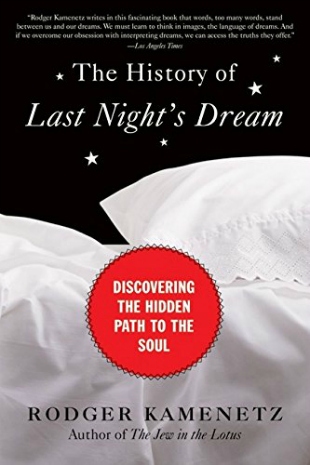Rodger Kamenetz is the author of the international bestseller The Jew in the Lotus and the National Jewish Book Award-winning Stalking Elijah. He is a professor of English and religious studies at Louisiana State University. Those familiar with his writings know that he is a bold explorer of spirituality, and he continues that quest in this erudite work. This time he focuses on dreams. Along the way, he must learn the true power of images, downplay the significance of interpretation, and only then enter the dream world as a realm of the soul. The teachers he meets have much wisdom to impart, and he is open to receive their lessons. He also ponders the predominance of the word over images in the Abrahamic religions.
In Jerusalem in 1995, the author meets Colette Aboulker-Muscat, an 87-year-old Algerian-born French Jewish mystic who enables him to see that images are sovereign in the mind. She creates brief imaginal exercises for her students, many of which can be used to supplement medical treatments of serious illnesses. Colette opens the author to the joy of "leaping into the unknown."
With amazing succinctness, Kamenetz swoops into the Bible and offers his take on the revelation dream of Jacob and the interpretation of dreams by Joseph. He tips his hat to Nachman of Bratzlav, a Hasidic teacher whom he calls "the greatest Jewish mystical dreamer" and also notes how the Christian Church Fathers allowed saints to have revelation dreams but not ordinary folk. He adds assessments of the contributions of Freud and Jung to dream theory and interpretation.
Over a four-year period, the author works with Marc Bregman, an intuitive archetypal dream master who lives in northern Vermont. He gets a kick out of the fact that this teacher is a postman because the Talmud says, "A dream uninterpreted is like a letter unopened." Kamenetz shares with Bregman some 800 pages of his recorded dreams; they agree that dreams are a nightly journey of the soul. By the end of The History of Last Night's Dream, we see and appreciate the three gifts of our dreams: to discover our pain, to see our soul, and to explore its realm.
